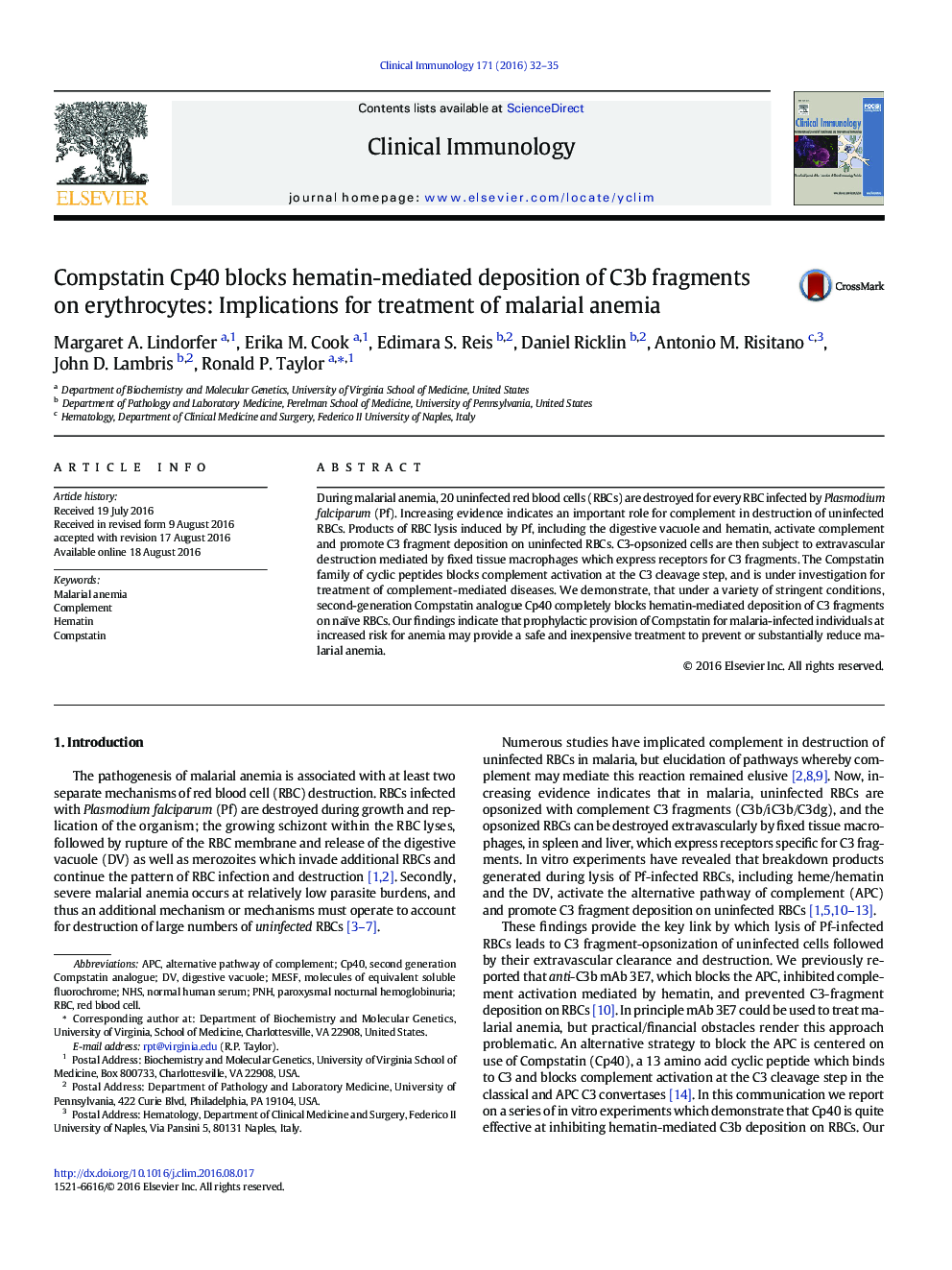| Article ID | Journal | Published Year | Pages | File Type |
|---|---|---|---|---|
| 6086955 | Clinical Immunology | 2016 | 4 Pages |
â¢In malarial anemia, ~ 20 uninfected erythrocytes are destroyed for every erythrocyte infected by Plasmodium falciparum (Pf)â¢Hematin, produced after erythrocyte lysis by Pf, mediates C3 deposition on uninfected erythrocytes, promoting their removalâ¢Compstatin Cp40 completely blocks this reaction in vitro, and may find applications in malaria treatment
During malarial anemia, 20 uninfected red blood cells (RBCs) are destroyed for every RBC infected by Plasmodium falciparum (Pf). Increasing evidence indicates an important role for complement in destruction of uninfected RBCs. Products of RBC lysis induced by Pf, including the digestive vacuole and hematin, activate complement and promote C3 fragment deposition on uninfected RBCs. C3-opsonized cells are then subject to extravascular destruction mediated by fixed tissue macrophages which express receptors for C3 fragments. The Compstatin family of cyclic peptides blocks complement activation at the C3 cleavage step, and is under investigation for treatment of complement-mediated diseases. We demonstrate, that under a variety of stringent conditions, second-generation Compstatin analogue Cp40 completely blocks hematin-mediated deposition of C3 fragments on naïve RBCs. Our findings indicate that prophylactic provision of Compstatin for malaria-infected individuals at increased risk for anemia may provide a safe and inexpensive treatment to prevent or substantially reduce malarial anemia.
